first
-
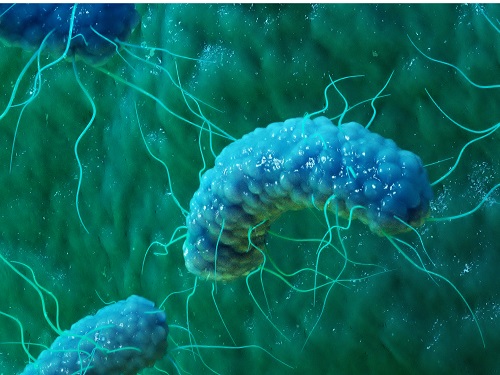 Phage resistant Escherichia coli strains developed to reduce fermentation failure
A genome engineering-based systematic strategy for developing phage resistant Escherichia coli strains has been successfully developed through the collaborative efforts of a team led by Professor Sang Yup Lee, Professor Shi Chen, and Professor Lianrong Wang. This study by Xuan Zou et al. was published in Nature Communications in August 2022 and featured in Nature Communications Editors’ Highlights. The collaboration by the School of Pharmaceutical Sciences at Wuhan University, the First Affiliated Hospital of Shenzhen University, and the KAIST Department of Chemical and Biomolecular Engineering has made an important advance in the metabolic engineering and fermentation industry as it solves a big problem of phage infection causing fermentation failure.
Systems metabolic engineering is a highly interdisciplinary field that has made the development of microbial cell factories to produce various bioproducts including chemicals, fuels, and materials possible in a sustainable and environmentally friendly way, mitigating the impact of worldwide resource depletion and climate change. Escherichia coli is one of the most important chassis microbial strains, given its wide applications in the bio-based production of a diverse range of chemicals and materials. With the development of tools and strategies for systems metabolic engineering using E. coli, a highly optimized and well-characterized cell factory will play a crucial role in converting cheap and readily available raw materials into products of great economic and industrial value.
However, the consistent problem of phage contamination in fermentation imposes a devastating impact on host cells and threatens the productivity of bacterial bioprocesses in biotechnology facilities, which can lead to widespread fermentation failure and immeasurable economic loss. Host-controlled defense systems can be developed into effective genetic engineering solutions to address bacteriophage contamination in industrial-scale fermentation; however, most of the resistance mechanisms only narrowly restrict phages and their effect on phage contamination will be limited.
There have been attempts to develop diverse abilities/systems for environmental adaptation or antiviral defense. The team’s collaborative efforts developed a new type II single-stranded DNA phosphorothioation (Ssp) defense system derived from E. coli 3234/A, which can be used in multiple industrial E. coli strains (e.g., E. coli K-12, B and W) to provide broad protection against various types of dsDNA coliphages. Furthermore, they developed a systematic genome engineering strategy involving the simultaneous genomic integration of the Ssp defense module and mutations in components that are essential to the phage life cycle. This strategy can be used to transform E. coli hosts that are highly susceptible to phage attack into strains with powerful restriction effects on the tested bacteriophages. This endows hosts with strong resistance against a wide spectrum of phage infections without affecting bacterial growth and normal physiological function. More importantly, the resulting engineered phage-resistant strains maintained the capabilities of producing the desired chemicals and recombinant proteins even under high levels of phage cocktail challenge, which provides crucial protection against phage attacks.
This is a major step forward, as it provides a systematic solution for engineering phage-resistant bacterial strains, especially industrial bioproduction strains, to protect cells from a wide range of bacteriophages. Considering the functionality of this engineering strategy with diverse E. coli strains, the strategy reported in this study can be widely extended to other bacterial species and industrial applications, which will be of great interest to researchers in academia and industry alike.
Fig. A schematic model of the systematic strategy for engineering phage-sensitive industrial E. coli strains into strains with broad antiphage activities. Through the simultaneous genomic integration of a DNA phosphorothioation-based Ssp defense module and mutations of components essential for the phage life cycle, the engineered E. coli strains show strong resistance against diverse phages tested and maintain the capabilities of producing example recombinant proteins, even under high levels of phage cocktail challenge.
2022.08.23 View 15144
Phage resistant Escherichia coli strains developed to reduce fermentation failure
A genome engineering-based systematic strategy for developing phage resistant Escherichia coli strains has been successfully developed through the collaborative efforts of a team led by Professor Sang Yup Lee, Professor Shi Chen, and Professor Lianrong Wang. This study by Xuan Zou et al. was published in Nature Communications in August 2022 and featured in Nature Communications Editors’ Highlights. The collaboration by the School of Pharmaceutical Sciences at Wuhan University, the First Affiliated Hospital of Shenzhen University, and the KAIST Department of Chemical and Biomolecular Engineering has made an important advance in the metabolic engineering and fermentation industry as it solves a big problem of phage infection causing fermentation failure.
Systems metabolic engineering is a highly interdisciplinary field that has made the development of microbial cell factories to produce various bioproducts including chemicals, fuels, and materials possible in a sustainable and environmentally friendly way, mitigating the impact of worldwide resource depletion and climate change. Escherichia coli is one of the most important chassis microbial strains, given its wide applications in the bio-based production of a diverse range of chemicals and materials. With the development of tools and strategies for systems metabolic engineering using E. coli, a highly optimized and well-characterized cell factory will play a crucial role in converting cheap and readily available raw materials into products of great economic and industrial value.
However, the consistent problem of phage contamination in fermentation imposes a devastating impact on host cells and threatens the productivity of bacterial bioprocesses in biotechnology facilities, which can lead to widespread fermentation failure and immeasurable economic loss. Host-controlled defense systems can be developed into effective genetic engineering solutions to address bacteriophage contamination in industrial-scale fermentation; however, most of the resistance mechanisms only narrowly restrict phages and their effect on phage contamination will be limited.
There have been attempts to develop diverse abilities/systems for environmental adaptation or antiviral defense. The team’s collaborative efforts developed a new type II single-stranded DNA phosphorothioation (Ssp) defense system derived from E. coli 3234/A, which can be used in multiple industrial E. coli strains (e.g., E. coli K-12, B and W) to provide broad protection against various types of dsDNA coliphages. Furthermore, they developed a systematic genome engineering strategy involving the simultaneous genomic integration of the Ssp defense module and mutations in components that are essential to the phage life cycle. This strategy can be used to transform E. coli hosts that are highly susceptible to phage attack into strains with powerful restriction effects on the tested bacteriophages. This endows hosts with strong resistance against a wide spectrum of phage infections without affecting bacterial growth and normal physiological function. More importantly, the resulting engineered phage-resistant strains maintained the capabilities of producing the desired chemicals and recombinant proteins even under high levels of phage cocktail challenge, which provides crucial protection against phage attacks.
This is a major step forward, as it provides a systematic solution for engineering phage-resistant bacterial strains, especially industrial bioproduction strains, to protect cells from a wide range of bacteriophages. Considering the functionality of this engineering strategy with diverse E. coli strains, the strategy reported in this study can be widely extended to other bacterial species and industrial applications, which will be of great interest to researchers in academia and industry alike.
Fig. A schematic model of the systematic strategy for engineering phage-sensitive industrial E. coli strains into strains with broad antiphage activities. Through the simultaneous genomic integration of a DNA phosphorothioation-based Ssp defense module and mutations of components essential for the phage life cycle, the engineered E. coli strains show strong resistance against diverse phages tested and maintain the capabilities of producing example recombinant proteins, even under high levels of phage cocktail challenge.
2022.08.23 View 15144 -
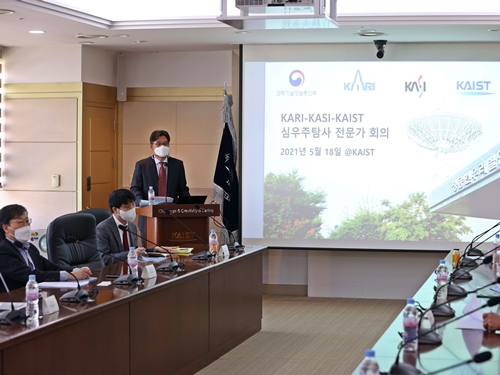 KAIST to join Deep Space Exploration Project
KAIST agreed to launch the Deep Space Exploration Research Consortium with two key leading aerospace research institutes, the Korea Aerospace Research Institute (KARI) and the Korea Astronomy and Space Science Institute (KASI) during a recent meeting at the KAIST campus. President Kwang Hyung Lee, KARI President Sang-Yool Lee, KASI President Young-Deuk Park, and Vice Minister of Science and ICT Hong-taek Yong attended the meeting to discuss medium- and long-term deep space exploration plans and collaborations.
The three entities have cooperated in scientific research for the last 30 years during which Korea has been developing its space exploration expertise. They signed the MoU for Cooperation for R&D and Industrialization on Deep Space Exploration’ last December. The research consortium will share and discuss research plans for space science research and exploration technology, and contribute to planning the nation’s deep space exploration.
At the meeting, KAIST reported its plans to return KITSAT-1 to Earth, Korea’s first satellite using local technology, and to explore the radiation belt (the Van Allen belt) around Earth. KAIST launched Korea’s first satellite KITSAT-1 in 1992. Meanwhile, KARI shared their plans to launch a lunar landing module using a Korean Space Launch Vehicle by 2030 and explained the current technologies and research related to a lunar landing and space exploration. Based on the payload technology it has been building on for the last 20 years, KASI emphasized the importance of research for deep space exploration in relation to the formation of the universe and the origin of mankind.
Vice Minister of Science and Technology Yong also stressed that “to enhance Korea’s capabilities for space research after launching our space launch vehicle, Nuri, in October, there must be continued efforts and preparation for higher level space research, including space exploration planning. The various experts’ opinions discussed in today’s meeting will be taken into consideration for governmental policies related to the ‘National Space Exploration Roadmap’ to be established in the latter half of this year.”
2021.06.07 View 9563
KAIST to join Deep Space Exploration Project
KAIST agreed to launch the Deep Space Exploration Research Consortium with two key leading aerospace research institutes, the Korea Aerospace Research Institute (KARI) and the Korea Astronomy and Space Science Institute (KASI) during a recent meeting at the KAIST campus. President Kwang Hyung Lee, KARI President Sang-Yool Lee, KASI President Young-Deuk Park, and Vice Minister of Science and ICT Hong-taek Yong attended the meeting to discuss medium- and long-term deep space exploration plans and collaborations.
The three entities have cooperated in scientific research for the last 30 years during which Korea has been developing its space exploration expertise. They signed the MoU for Cooperation for R&D and Industrialization on Deep Space Exploration’ last December. The research consortium will share and discuss research plans for space science research and exploration technology, and contribute to planning the nation’s deep space exploration.
At the meeting, KAIST reported its plans to return KITSAT-1 to Earth, Korea’s first satellite using local technology, and to explore the radiation belt (the Van Allen belt) around Earth. KAIST launched Korea’s first satellite KITSAT-1 in 1992. Meanwhile, KARI shared their plans to launch a lunar landing module using a Korean Space Launch Vehicle by 2030 and explained the current technologies and research related to a lunar landing and space exploration. Based on the payload technology it has been building on for the last 20 years, KASI emphasized the importance of research for deep space exploration in relation to the formation of the universe and the origin of mankind.
Vice Minister of Science and Technology Yong also stressed that “to enhance Korea’s capabilities for space research after launching our space launch vehicle, Nuri, in October, there must be continued efforts and preparation for higher level space research, including space exploration planning. The various experts’ opinions discussed in today’s meeting will be taken into consideration for governmental policies related to the ‘National Space Exploration Roadmap’ to be established in the latter half of this year.”
2021.06.07 View 9563 -
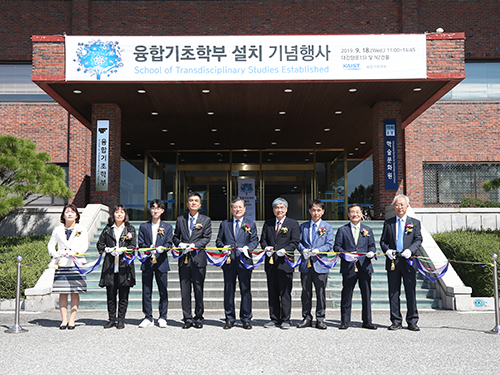 School of Transdisciplinary Studies Aims to Attract New Talents
KAIST opened the School of Transdisciplinary Studies to foster ‘convergent talents’ who can create new knowledge through a transdisciplinary approach. The new department will officially start classes in the spring semester of 2020 while recruiting its first cohorts during the fall semester among current freshmen.
President Sung-Chul Shin, the Head of the School of Transdisciplinary Studies Jong Duk Kim, and other prominent members of KAIST’s administration celebrated the opening of the new department during a ceremony on September 18. Students who will declare their major this semester and many parents showed strong interests in this new department while attending the ceremony. They all toured the new facilities together and attended the special lecture sessions.
The School of Transdisciplinary Studies is designed to empower students to create new solutions to emerging complex technologies and rapidly evolving global issues. This is one of the education innovation initiatives under Vision 2031, the plan President Sung-Chul Shin has launched to nurture creative young convergent leaders, and the first single transdisciplinary department that will be introduced in a Korean university.
The new faculty aims to educate students who will have a deeper understanding of the humanities, scientific creativity, the ability to conceive new ideas, complex problem-solving skills, and global leadership. The curriculum boasts a strong foundation of basic science and humanities over six required courses in physics, chemistry, molecular biology, applied mathematics modeling, data structure, and economics. Then, students will explore their academic depth by choosing one of eight emerging fields. The eight concentration majors encompass data and AI, smart cities and media, healthcare, culture and media, management and startups, materials and matter, energy and environment, and machinery and precision. In their third and fourth years, students can customize their study course based on their career path and academic interest after consultation with a faculty mentor and an internship. Upon graduation, they will earn a bachelor’s degree in convergent science or a bachelor of convergent engineering degree. They may also elect to receive a bachelor’s degree in science or engineering.
“This faculty offers deep knowledge in basic science and humanities to help students explore their specialties more creatively. Specialties built upon strong theory and creative applicability will be the key to solving the global challenges in an era of volatility, uncertainty, complexity, and ambiguity,” said Professor Kim, the head of the school, at the ceremony.
President Shin also stressed the importance of convergence education during his special lecture, saying, “We will continue to strive to foster new talents who will create new convergent knowledge in emerging technologies such as IoT, big data, 5G, and AI. By fostering such young convergent talents, we will take the lead in national development and work for the prosperity of humanity.”
(END)
2019.09.19 View 6220
School of Transdisciplinary Studies Aims to Attract New Talents
KAIST opened the School of Transdisciplinary Studies to foster ‘convergent talents’ who can create new knowledge through a transdisciplinary approach. The new department will officially start classes in the spring semester of 2020 while recruiting its first cohorts during the fall semester among current freshmen.
President Sung-Chul Shin, the Head of the School of Transdisciplinary Studies Jong Duk Kim, and other prominent members of KAIST’s administration celebrated the opening of the new department during a ceremony on September 18. Students who will declare their major this semester and many parents showed strong interests in this new department while attending the ceremony. They all toured the new facilities together and attended the special lecture sessions.
The School of Transdisciplinary Studies is designed to empower students to create new solutions to emerging complex technologies and rapidly evolving global issues. This is one of the education innovation initiatives under Vision 2031, the plan President Sung-Chul Shin has launched to nurture creative young convergent leaders, and the first single transdisciplinary department that will be introduced in a Korean university.
The new faculty aims to educate students who will have a deeper understanding of the humanities, scientific creativity, the ability to conceive new ideas, complex problem-solving skills, and global leadership. The curriculum boasts a strong foundation of basic science and humanities over six required courses in physics, chemistry, molecular biology, applied mathematics modeling, data structure, and economics. Then, students will explore their academic depth by choosing one of eight emerging fields. The eight concentration majors encompass data and AI, smart cities and media, healthcare, culture and media, management and startups, materials and matter, energy and environment, and machinery and precision. In their third and fourth years, students can customize their study course based on their career path and academic interest after consultation with a faculty mentor and an internship. Upon graduation, they will earn a bachelor’s degree in convergent science or a bachelor of convergent engineering degree. They may also elect to receive a bachelor’s degree in science or engineering.
“This faculty offers deep knowledge in basic science and humanities to help students explore their specialties more creatively. Specialties built upon strong theory and creative applicability will be the key to solving the global challenges in an era of volatility, uncertainty, complexity, and ambiguity,” said Professor Kim, the head of the school, at the ceremony.
President Shin also stressed the importance of convergence education during his special lecture, saying, “We will continue to strive to foster new talents who will create new convergent knowledge in emerging technologies such as IoT, big data, 5G, and AI. By fostering such young convergent talents, we will take the lead in national development and work for the prosperity of humanity.”
(END)
2019.09.19 View 6220 -
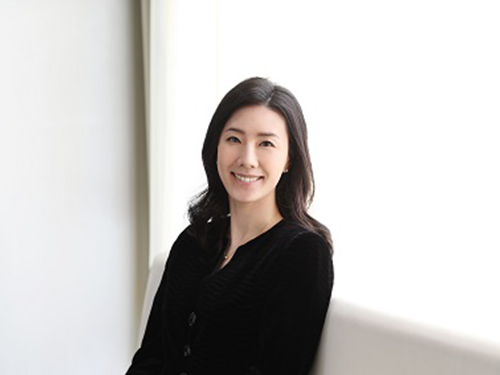 Professor Lee Elected as a Council Member of ION
< Professor Jiyun Lee >
Professor Jiyun Lee from the Department of Aerospace Engineering became the first professor of Korean university to be selected as a council member of the Institute of Navigation (ION), serving specifically as a technical representative.
ION is a world-leading organization established in 1945 and dedicated to advancing Positioning, Navigation and Timing (PNT) technologies. ION’s international membership is drawn not only from professionals in the fields of navigation, engineering, astronomy, education, and general aviation and the airline industry, but also from various supporting institutions, corporations, and government agencies.
Professor Lee has been actively engaged in the Institute’s academic and community activities as a technical advisor for the Satellite Division in the Asia-Pacific region, a chair of the International Technical Meeting, as well as a section chair of the Global Navigation Satellite System (GNSS+) Conference. She has also published 34 papers in numerous ION journals and conference proceedings over the past 10 years while serving as an associate editor of the ION Navigation Journal.
From these activities, Professor Lee was recognized for her academic achievements and committed leadership, which led her to be appointed as the first professor from a Korean university to participate on the Council. She will serve her term over the next two years, and conduct day-to-day operations for the Institute mainly related to developing new programs and strategies for the advancement of PNT technologies and discovering new distinguished members.
2019.06.27 View 8358
Professor Lee Elected as a Council Member of ION
< Professor Jiyun Lee >
Professor Jiyun Lee from the Department of Aerospace Engineering became the first professor of Korean university to be selected as a council member of the Institute of Navigation (ION), serving specifically as a technical representative.
ION is a world-leading organization established in 1945 and dedicated to advancing Positioning, Navigation and Timing (PNT) technologies. ION’s international membership is drawn not only from professionals in the fields of navigation, engineering, astronomy, education, and general aviation and the airline industry, but also from various supporting institutions, corporations, and government agencies.
Professor Lee has been actively engaged in the Institute’s academic and community activities as a technical advisor for the Satellite Division in the Asia-Pacific region, a chair of the International Technical Meeting, as well as a section chair of the Global Navigation Satellite System (GNSS+) Conference. She has also published 34 papers in numerous ION journals and conference proceedings over the past 10 years while serving as an associate editor of the ION Navigation Journal.
From these activities, Professor Lee was recognized for her academic achievements and committed leadership, which led her to be appointed as the first professor from a Korean university to participate on the Council. She will serve her term over the next two years, and conduct day-to-day operations for the Institute mainly related to developing new programs and strategies for the advancement of PNT technologies and discovering new distinguished members.
2019.06.27 View 8358 -
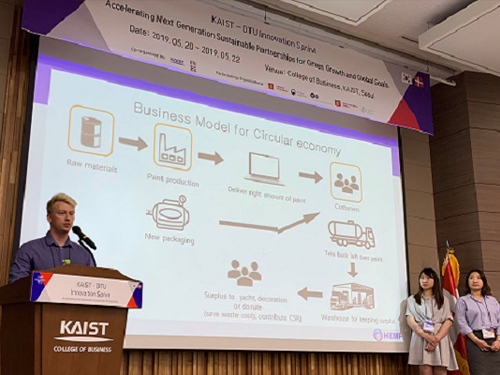 'Think Out of the Box,' Team Circos Wins the P4G Innovation Sprint
<The winning team of the P4G Innovation Sprint poses with the Crown Prince of Denmark (sixth from the left in the first row) and President Shin (fifth from the left in the first row) during the awarding ceremony.>
Team Circos from KAIST and Denmark made a new sustainable business model for Hempel, a global coating supplier group in Denmark, and won the first prize at the P4G (the Partnership for Green Growth and Global Goals) Innovation Sprint held at KAIST’s Seoul campus on May 22. The six-member team was awarded one million KRW in prize money by the Crown Prince of Denmark. Two of winning team members have the privilege of traveling to visit Hempel in Denmark.
The winning team thought outside the box, inspired by box wine which reduced the sales price from traditional bottled wine. Six teams made up of members from different academic disciplines spent two nights and three days brainstorming ways to resolve the challenges of corporations such as Velux and Hempel from Denmark and SK from Korea.
The P4G Innovation Sprint is one of the events co-hosted by KAIST and Technological University of Denmark in celebration of the 60th anniversary of diplomatic relations establishment between Denmark and Korea and the 8th anniversary of the Green Growth Alliance between the two countries. The Crown Prince Couple also made a royal visit to Korea in honor of the 60th anniversary celebration and Green Growth Alliance between the two countries.
This Innovation Sprint aimed to develop young academics’ perspectives, skills, and talents for the next generation to better research the Sustainable Development Goals set by UN.
Three teams made their final five-minute pitches before the Crown Prince and President Sung-Chul
Shin and responded to questions from the four-member jury.
The Crown Prince of Denmark and President Shin both agreed that the collaborative and convergent ideas will address global problems.
The Crown Prince stressed in his congratulatory remarks the importance of partnership in this polarizing world to achieve sustainable improvements saying, “Partnerships are only possible to sustain through collaboration and hard work while staying curious, creative, and critical. " He also shared the special relationship with KAIST. His father-in-law Professor John Donaldson used to be a visiting professor of applied mathmatics at KAIST back in 2003.
President Shin added, “Collaboration across boundaries is most critical for responding to these issues. In that sense, this P4G Innovation Sprint is a shining example for demonstrating the collaborative efforts between teammates from diverse disciplines. When we work together and build convergent ideas, we will be more innovative and go further.”
<Winning team member Nicolai Thorball from DTU pitches at the final in the presence of the Crown Prince of Denmark and KAIST President Shin.>
“The canned packaging in the paint industry results in 40 times more carbon emission in the course of production. However, when using aluminum packaging which is recyclable, the waste amount will be cut dramatically,” pitched Nicolai Thorball from DTU on exchange at Seoul National University. Nicolai, whose major is environmental engineering, is one of two Danish students including Thomsen Xandra Flyvbjerg from the University of Southern Denmark. Flyvbjergy, majoring in business, is now on exchange at Sungkynkwan University.
“I am very glad to have the chance to understand the concept of the circular economy and green growth at the sprint. It was also very challenging to make ideation from so many ideas brainstormed,” said Dong-Eun Lee, a KAIST undergraduate from the Department of Biological Sciences. He said that he learned a lot from his two other teammates who are from the Program of Green Business & Policy at KAIST College of Business, Jae-Hee Park and Kyung-Hyun Kim. Juho Park majoring in mechanical engineering at KAIST was one of the team.
Circos’ solution for a sustainable model received acclaim from the jury members. DTU Senior Vice President Marianne Thellerson, one of jurors, claimed their model has very high market feasibility, saying, “Their idea could be commercialized right now into the market.” Professor Hee-Kyung Park from KAIST who helped participants’ ideation as one of four mentors said, “The winning team perfectly met all the components of the evaluation criteria, Solution, Acceleration, and Pitch.”
At this sprint, 10 students from Denmark and 29 KAIST students were divided into 6 teams and given the challenges of three companies. The Danish window facility company Velux presented its future glass window system and the paint company Hempel their circular economic new business model. SK challenged the students to help it become a global clean energy solution company. The event was based on a hacker blueprint that found the optimal solution to the topics proposed.
2019.05.23 View 10218
'Think Out of the Box,' Team Circos Wins the P4G Innovation Sprint
<The winning team of the P4G Innovation Sprint poses with the Crown Prince of Denmark (sixth from the left in the first row) and President Shin (fifth from the left in the first row) during the awarding ceremony.>
Team Circos from KAIST and Denmark made a new sustainable business model for Hempel, a global coating supplier group in Denmark, and won the first prize at the P4G (the Partnership for Green Growth and Global Goals) Innovation Sprint held at KAIST’s Seoul campus on May 22. The six-member team was awarded one million KRW in prize money by the Crown Prince of Denmark. Two of winning team members have the privilege of traveling to visit Hempel in Denmark.
The winning team thought outside the box, inspired by box wine which reduced the sales price from traditional bottled wine. Six teams made up of members from different academic disciplines spent two nights and three days brainstorming ways to resolve the challenges of corporations such as Velux and Hempel from Denmark and SK from Korea.
The P4G Innovation Sprint is one of the events co-hosted by KAIST and Technological University of Denmark in celebration of the 60th anniversary of diplomatic relations establishment between Denmark and Korea and the 8th anniversary of the Green Growth Alliance between the two countries. The Crown Prince Couple also made a royal visit to Korea in honor of the 60th anniversary celebration and Green Growth Alliance between the two countries.
This Innovation Sprint aimed to develop young academics’ perspectives, skills, and talents for the next generation to better research the Sustainable Development Goals set by UN.
Three teams made their final five-minute pitches before the Crown Prince and President Sung-Chul
Shin and responded to questions from the four-member jury.
The Crown Prince of Denmark and President Shin both agreed that the collaborative and convergent ideas will address global problems.
The Crown Prince stressed in his congratulatory remarks the importance of partnership in this polarizing world to achieve sustainable improvements saying, “Partnerships are only possible to sustain through collaboration and hard work while staying curious, creative, and critical. " He also shared the special relationship with KAIST. His father-in-law Professor John Donaldson used to be a visiting professor of applied mathmatics at KAIST back in 2003.
President Shin added, “Collaboration across boundaries is most critical for responding to these issues. In that sense, this P4G Innovation Sprint is a shining example for demonstrating the collaborative efforts between teammates from diverse disciplines. When we work together and build convergent ideas, we will be more innovative and go further.”
<Winning team member Nicolai Thorball from DTU pitches at the final in the presence of the Crown Prince of Denmark and KAIST President Shin.>
“The canned packaging in the paint industry results in 40 times more carbon emission in the course of production. However, when using aluminum packaging which is recyclable, the waste amount will be cut dramatically,” pitched Nicolai Thorball from DTU on exchange at Seoul National University. Nicolai, whose major is environmental engineering, is one of two Danish students including Thomsen Xandra Flyvbjerg from the University of Southern Denmark. Flyvbjergy, majoring in business, is now on exchange at Sungkynkwan University.
“I am very glad to have the chance to understand the concept of the circular economy and green growth at the sprint. It was also very challenging to make ideation from so many ideas brainstormed,” said Dong-Eun Lee, a KAIST undergraduate from the Department of Biological Sciences. He said that he learned a lot from his two other teammates who are from the Program of Green Business & Policy at KAIST College of Business, Jae-Hee Park and Kyung-Hyun Kim. Juho Park majoring in mechanical engineering at KAIST was one of the team.
Circos’ solution for a sustainable model received acclaim from the jury members. DTU Senior Vice President Marianne Thellerson, one of jurors, claimed their model has very high market feasibility, saying, “Their idea could be commercialized right now into the market.” Professor Hee-Kyung Park from KAIST who helped participants’ ideation as one of four mentors said, “The winning team perfectly met all the components of the evaluation criteria, Solution, Acceleration, and Pitch.”
At this sprint, 10 students from Denmark and 29 KAIST students were divided into 6 teams and given the challenges of three companies. The Danish window facility company Velux presented its future glass window system and the paint company Hempel their circular economic new business model. SK challenged the students to help it become a global clean energy solution company. The event was based on a hacker blueprint that found the optimal solution to the topics proposed.
2019.05.23 View 10218 -
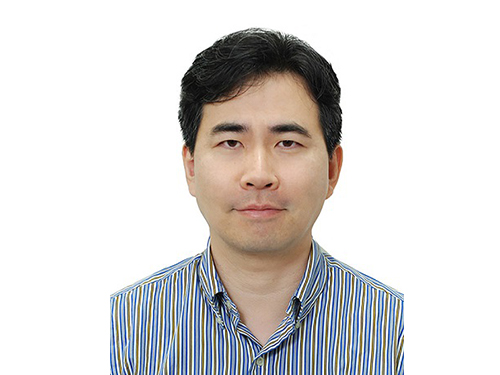 First Korean Member of OceanObs' Organizing Committee
Professor Sung Yong Kim from the Department of Mechanical Engineering became the first Korean to be elected as an organizing committee member of the international conference OceanObs’19’, specializing in the ocean observing field.
Professor Kim has been actively engaged in advisory panels, technical committees, and working groups for the North Pacific Marine Science Organization (PICES). Through numerous activities, he was recognized for his professionalism and academic achievements, which led him to be appointed as a member of the organizing committee.
The organizing committee is comprised of leading scholars and researchers from 20 countries, and Professor Kim will be the first Korean scientist to participate on the committee.
Since 1999, the conference has been held every decade. Global experts specializing in oceanic observation gather to discuss research directions for the next ten years by monitoring physical, biological, and chemical variables in regional, national, and global oceans and applying marine engineering.
This year, approximately 20 institutes including NASA’s Jet Propulsion Laboratory (JPL), the National Science Foundation, the National Oceanic and Atmospheric Administration, and the European Space Agency will support funds as well as high-tech equipment to the conference.
This year’s conference theme is the governance of global ocean observing systems such as underwater gliders, unmanned vehicles, remote sensing, and observatories. The conference will hold discussions on monitoring technology and information systems to ensure human safety as well as to develop and preserve food resources. Additionally, participants will explore ways to expand observational infrastructures and carry out multidisciplinary approaches.
There will also be collaborations with the Global Ocean Observing System (GOOS) and the Partnership for Observation of the Global Oceans (POGO) to organize ocean observing programs and discuss priorities.
Finally, they will set a long-term plan for solving major scientific issues, such as climate change, ocean acidification, energy, and marine pollution.
Professor Kim said, “Based on the outcomes drawn from the conference, I will carry out research on natural disasters and climate change monitoring by using unmanned observing systems. I will also encourage more multidisciplinary research in this field.”
2019.01.25 View 13036
First Korean Member of OceanObs' Organizing Committee
Professor Sung Yong Kim from the Department of Mechanical Engineering became the first Korean to be elected as an organizing committee member of the international conference OceanObs’19’, specializing in the ocean observing field.
Professor Kim has been actively engaged in advisory panels, technical committees, and working groups for the North Pacific Marine Science Organization (PICES). Through numerous activities, he was recognized for his professionalism and academic achievements, which led him to be appointed as a member of the organizing committee.
The organizing committee is comprised of leading scholars and researchers from 20 countries, and Professor Kim will be the first Korean scientist to participate on the committee.
Since 1999, the conference has been held every decade. Global experts specializing in oceanic observation gather to discuss research directions for the next ten years by monitoring physical, biological, and chemical variables in regional, national, and global oceans and applying marine engineering.
This year, approximately 20 institutes including NASA’s Jet Propulsion Laboratory (JPL), the National Science Foundation, the National Oceanic and Atmospheric Administration, and the European Space Agency will support funds as well as high-tech equipment to the conference.
This year’s conference theme is the governance of global ocean observing systems such as underwater gliders, unmanned vehicles, remote sensing, and observatories. The conference will hold discussions on monitoring technology and information systems to ensure human safety as well as to develop and preserve food resources. Additionally, participants will explore ways to expand observational infrastructures and carry out multidisciplinary approaches.
There will also be collaborations with the Global Ocean Observing System (GOOS) and the Partnership for Observation of the Global Oceans (POGO) to organize ocean observing programs and discuss priorities.
Finally, they will set a long-term plan for solving major scientific issues, such as climate change, ocean acidification, energy, and marine pollution.
Professor Kim said, “Based on the outcomes drawn from the conference, I will carry out research on natural disasters and climate change monitoring by using unmanned observing systems. I will also encourage more multidisciplinary research in this field.”
2019.01.25 View 13036 -
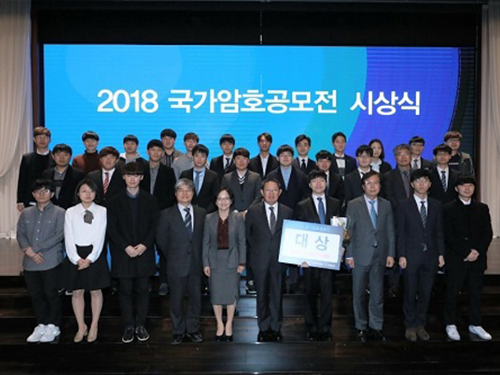 KAIST Shows Strong Performance in Crypto Contest Korea 2018
(Awardees at the ceremony for Crypto Contest Korea 2018)
A paper titled “Indifferentiability of Truncated Random Permutations” by PhD candidate Wonseok Choi and MS candidate Byeonghak Lee (under Professor Jooyoung Lee) from the KAIST Graduate School of Information Security (GSIS) won first place in Crypto Contest Korea 2018. Byeonghak Lee became a repeat winner since his paper titled “Tweakable Block Ciphers Secure Beyond the Birthday Bound in the Ideal Cipher Model” also received an award at Crypto Contest Korea 2017.
The contest, hosted by the Korea Cryptography Forum, the Korea Institute of Information Security & Cryptology, and the National Security Research Institute and sponsored by the National Intelligence Service, was held for promoting cryptography in Korea. The total prize money is fifty million won with ten million won going to the first place winners.
The contest was divided into three divisions: paper, problem solving, and idea. Among the three divisions, first place came from the paper division only.
Besides first place, KAIST students showed outstanding performance in the contest. PhD candidate Seongkwang Kim received participation prize while he also received special prizes with MS candidate Yeongmin Lee. The hacking club GoN (under Professor Sang Kil Cha), comprised of undergraduate students from the GSIS was awarded the grand prize in the division of problem solving.
The award ceremony was held during the Future Crypto Workshop 2018 on November 15. The awards ceremony for Crypto Expert Korea 2018 were also held there, and PhD candidate Ji-Eun Lee from the School of Computing and Byeonghak Lee received awards, the grand prize and runner-up prize respectively.
2018.11.27 View 9836
KAIST Shows Strong Performance in Crypto Contest Korea 2018
(Awardees at the ceremony for Crypto Contest Korea 2018)
A paper titled “Indifferentiability of Truncated Random Permutations” by PhD candidate Wonseok Choi and MS candidate Byeonghak Lee (under Professor Jooyoung Lee) from the KAIST Graduate School of Information Security (GSIS) won first place in Crypto Contest Korea 2018. Byeonghak Lee became a repeat winner since his paper titled “Tweakable Block Ciphers Secure Beyond the Birthday Bound in the Ideal Cipher Model” also received an award at Crypto Contest Korea 2017.
The contest, hosted by the Korea Cryptography Forum, the Korea Institute of Information Security & Cryptology, and the National Security Research Institute and sponsored by the National Intelligence Service, was held for promoting cryptography in Korea. The total prize money is fifty million won with ten million won going to the first place winners.
The contest was divided into three divisions: paper, problem solving, and idea. Among the three divisions, first place came from the paper division only.
Besides first place, KAIST students showed outstanding performance in the contest. PhD candidate Seongkwang Kim received participation prize while he also received special prizes with MS candidate Yeongmin Lee. The hacking club GoN (under Professor Sang Kil Cha), comprised of undergraduate students from the GSIS was awarded the grand prize in the division of problem solving.
The award ceremony was held during the Future Crypto Workshop 2018 on November 15. The awards ceremony for Crypto Expert Korea 2018 were also held there, and PhD candidate Ji-Eun Lee from the School of Computing and Byeonghak Lee received awards, the grand prize and runner-up prize respectively.
2018.11.27 View 9836 -
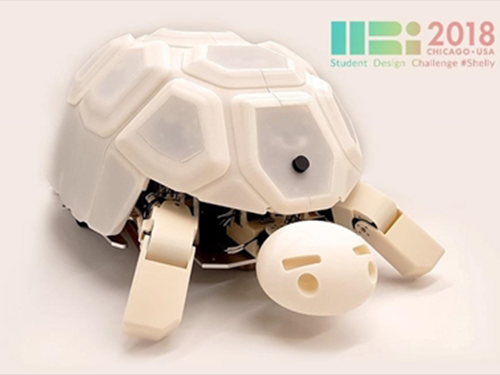 KAIST Student Wins HRI Student Design Competition
(From left: Jason Jangho Choi, Hyunjin Ku and Wonkyung Do)
Hyunjin Ku from the Department of Mechanical Engineering won the first prize at the Student Design Competition of Human-Robot-Interaction (HRI) 2018 which was held in Chicago.
Ku teamed up with undergrad students from Seoul National University (Jason Jangho Choi, Soomin Lee, Sunho Jang, and Wonkyung Do) and submitted Shelly, a tortoise-like robot for one-to-many interactions with children.
Figure 1. Shelly, a tortoise-like robot for one-to-many interactions with children
In the Student Design Competition of the HRI, students from around the globe can submit designs for their interactive robotic objects. The competition focused on human-agent interactions and practical applications.
Ku conducted the research while doing an internship at NAVER Labs. Her research on learning robot abuse with Shelly was published in IEEE Spectrum.
[YTN Science]
https://www.youtube.com/watch?v=n5KVwgBk0wk
[HRI 2018 Website]
http://humanrobotinteraction.org/2018/sdc/
[IEEE Spectrum]
https://spectrum.ieee.org/automaton/robotics/robotics-hardware/shelly-robotic-tortoise-helps-kids-learn-that-robot-abuse-is-a-bad-thing
2018.07.02 View 9314
KAIST Student Wins HRI Student Design Competition
(From left: Jason Jangho Choi, Hyunjin Ku and Wonkyung Do)
Hyunjin Ku from the Department of Mechanical Engineering won the first prize at the Student Design Competition of Human-Robot-Interaction (HRI) 2018 which was held in Chicago.
Ku teamed up with undergrad students from Seoul National University (Jason Jangho Choi, Soomin Lee, Sunho Jang, and Wonkyung Do) and submitted Shelly, a tortoise-like robot for one-to-many interactions with children.
Figure 1. Shelly, a tortoise-like robot for one-to-many interactions with children
In the Student Design Competition of the HRI, students from around the globe can submit designs for their interactive robotic objects. The competition focused on human-agent interactions and practical applications.
Ku conducted the research while doing an internship at NAVER Labs. Her research on learning robot abuse with Shelly was published in IEEE Spectrum.
[YTN Science]
https://www.youtube.com/watch?v=n5KVwgBk0wk
[HRI 2018 Website]
http://humanrobotinteraction.org/2018/sdc/
[IEEE Spectrum]
https://spectrum.ieee.org/automaton/robotics/robotics-hardware/shelly-robotic-tortoise-helps-kids-learn-that-robot-abuse-is-a-bad-thing
2018.07.02 View 9314 -
 First Female Grand Prize Awardee of Samsung Humantech
Yeunhee Huh, PhD candidate (Professor Gyu-Hyeong Cho) from the School of Electrical Engineering received the grand prize of the 24th Humantech Paper Award. She is the first female recipient of this prize since its establishment in 1994. The Humantech Paper Award is hosted by Samsung Electronics and sponsored by the Ministry of Science and ICT with JoongAng Daily Newspaper. Her paper is titled, ‘A Hybrid Structure Dual-Path Step-Down Converter with 96.2% Peak Efficiency using 250mΩ Large-DCR Inductor’. Electronic devices require numerous chips and have a power converter to supply energy adequately. She proposed a new structure to enhance energy efficiency by combining inductors and capacitors. Enhancing energy efficiency can reduce energy loss, which prolongs battery hours and solves overheating of devices; for instance, energy loss leads to the overheating issue affecting phone chargers. This technology can be applied to various electronic devices, such as cell phones, laptops, and drones. Huh said, “Power has to go up in order to meet customers’ needs; however the overheating problem emerges during this process. This problem affects surrounding circuits and causes other issues, such as malfunctions of electronic devices. This technology may vary according to the conditions, but it can enhance energy efficiency up to 4%.”During the ceremony, about eight hundred million KRW worth cash prizes was conferred to 119 papers. KAIST (44 papers) and Gyeonggi Science High School (6 papers) received special awards given to the schools.
2018.02.12 View 10684
First Female Grand Prize Awardee of Samsung Humantech
Yeunhee Huh, PhD candidate (Professor Gyu-Hyeong Cho) from the School of Electrical Engineering received the grand prize of the 24th Humantech Paper Award. She is the first female recipient of this prize since its establishment in 1994. The Humantech Paper Award is hosted by Samsung Electronics and sponsored by the Ministry of Science and ICT with JoongAng Daily Newspaper. Her paper is titled, ‘A Hybrid Structure Dual-Path Step-Down Converter with 96.2% Peak Efficiency using 250mΩ Large-DCR Inductor’. Electronic devices require numerous chips and have a power converter to supply energy adequately. She proposed a new structure to enhance energy efficiency by combining inductors and capacitors. Enhancing energy efficiency can reduce energy loss, which prolongs battery hours and solves overheating of devices; for instance, energy loss leads to the overheating issue affecting phone chargers. This technology can be applied to various electronic devices, such as cell phones, laptops, and drones. Huh said, “Power has to go up in order to meet customers’ needs; however the overheating problem emerges during this process. This problem affects surrounding circuits and causes other issues, such as malfunctions of electronic devices. This technology may vary according to the conditions, but it can enhance energy efficiency up to 4%.”During the ceremony, about eight hundred million KRW worth cash prizes was conferred to 119 papers. KAIST (44 papers) and Gyeonggi Science High School (6 papers) received special awards given to the schools.
2018.02.12 View 10684 -
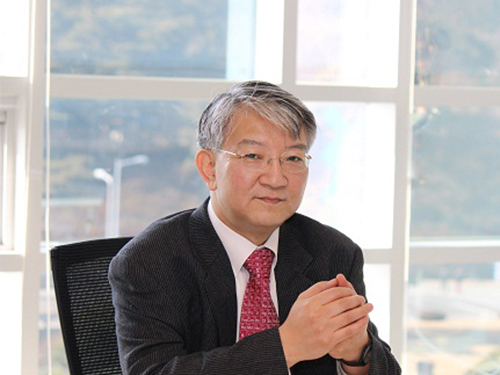 Distinguished Professor Sang Yup Lee Named NAI Fellow
(Distinguished Professor Sang Yup Lee)
Distinguished Professor Sang Yup Lee of the Department of Chemical and Biomolecular Engineering was named to the National Academy of Inventors in the US. He is the first Korean scholar ever elected as a NAI fellow.
The NAI is a non-profit member organization with over 4,000 individual inventors and fellows spanning more than 250 institutions worldwide. It is comprised of universities as well as governmental and non-profit research institutes. The academy was founded in 2010 to recognize and encourage inventors with patents from the US Patent and Trademark Office. So far, 575 fellows from 229 institutions have been elected.
The academy said Professor Lee has been recognized for fellowship induction as he has demonstrated a highly prolific spirit of innovation in creating or facilitating outstanding inventions that have made a tangible impact on quality of life, economic development, and the welfare of society.
Distinguished Professor Lee, a pioneering researcher and scholar in the field of systems metabolic engineering, was ranked in the top 1% of highly cited researchers (HCR) this year. Over the past 11 years, he published more than 130,000 articles in prestigious journals around the world. He has been cited more than 34,000 times since he started working at KAIST in 1994.
He is also the first Korean ever elected to both the National Academy of Sciences (NAS) and the National Academy of Engineering (NAE) in the US, becoming the one of 13 foreign scholars in the world holding two prestigious institutions’ fellowships.
Dr. Lee is currently the dean of KAIST Institutes, the world-leading institute for multi and interdisciplinary research. He is also serving as co-chair of the Global Council on Biotechnology and is a member of the Global Future Council on the Fourth Industrial Revolution at the World Economic Forum.
2017.12.13 View 9952
Distinguished Professor Sang Yup Lee Named NAI Fellow
(Distinguished Professor Sang Yup Lee)
Distinguished Professor Sang Yup Lee of the Department of Chemical and Biomolecular Engineering was named to the National Academy of Inventors in the US. He is the first Korean scholar ever elected as a NAI fellow.
The NAI is a non-profit member organization with over 4,000 individual inventors and fellows spanning more than 250 institutions worldwide. It is comprised of universities as well as governmental and non-profit research institutes. The academy was founded in 2010 to recognize and encourage inventors with patents from the US Patent and Trademark Office. So far, 575 fellows from 229 institutions have been elected.
The academy said Professor Lee has been recognized for fellowship induction as he has demonstrated a highly prolific spirit of innovation in creating or facilitating outstanding inventions that have made a tangible impact on quality of life, economic development, and the welfare of society.
Distinguished Professor Lee, a pioneering researcher and scholar in the field of systems metabolic engineering, was ranked in the top 1% of highly cited researchers (HCR) this year. Over the past 11 years, he published more than 130,000 articles in prestigious journals around the world. He has been cited more than 34,000 times since he started working at KAIST in 1994.
He is also the first Korean ever elected to both the National Academy of Sciences (NAS) and the National Academy of Engineering (NAE) in the US, becoming the one of 13 foreign scholars in the world holding two prestigious institutions’ fellowships.
Dr. Lee is currently the dean of KAIST Institutes, the world-leading institute for multi and interdisciplinary research. He is also serving as co-chair of the Global Council on Biotechnology and is a member of the Global Future Council on the Fourth Industrial Revolution at the World Economic Forum.
2017.12.13 View 9952 -
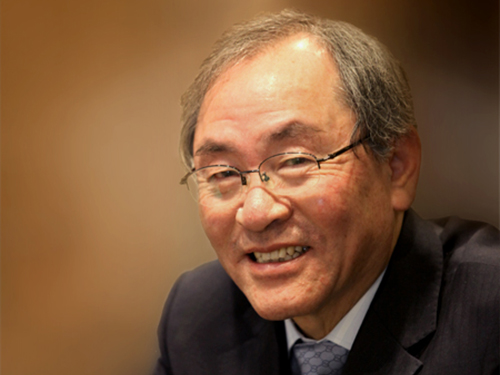 Professor Nam Jin Cho Selected as the Eugene P. Wigner Reactor Physicist Awardee
Professor Nam Jin Cho from the Department of Nuclear & Quantum Engineering was selected as the recipient of the 2017 ‘Eugene P. Wigner Reactor Physicist Award.’ The award, established in 1990 by the American Nuclear Society, honors individuals who have made outstanding contributions to the advancement of the field of reactor physics. The award is named after the late Eugene P. Wigner, a pioneer who helped nurture the nuclear age to technical maturity with his pioneering leadership in reactor design.
Professor Cho was recognized for his outstanding leadership and achievement in the field of nuclear physics, especially with his original research in analytic function expansion nodal methods, coarse-mesh angular dependent rebalance methods, and neutron transport calculations. A fellow of the ANS, Professor Cho is the first awardee from the Asian region.
Professor Cho gave all the credit to his colleagues and students at KAIST who have spared no effort while working together for three decades. “I am very grateful for the unique academic ambience which made this challenging work possible as well as the government’s continuing funding at the National Research Laboratory project.
2017.07.12 View 8503
Professor Nam Jin Cho Selected as the Eugene P. Wigner Reactor Physicist Awardee
Professor Nam Jin Cho from the Department of Nuclear & Quantum Engineering was selected as the recipient of the 2017 ‘Eugene P. Wigner Reactor Physicist Award.’ The award, established in 1990 by the American Nuclear Society, honors individuals who have made outstanding contributions to the advancement of the field of reactor physics. The award is named after the late Eugene P. Wigner, a pioneer who helped nurture the nuclear age to technical maturity with his pioneering leadership in reactor design.
Professor Cho was recognized for his outstanding leadership and achievement in the field of nuclear physics, especially with his original research in analytic function expansion nodal methods, coarse-mesh angular dependent rebalance methods, and neutron transport calculations. A fellow of the ANS, Professor Cho is the first awardee from the Asian region.
Professor Cho gave all the credit to his colleagues and students at KAIST who have spared no effort while working together for three decades. “I am very grateful for the unique academic ambience which made this challenging work possible as well as the government’s continuing funding at the National Research Laboratory project.
2017.07.12 View 8503 -
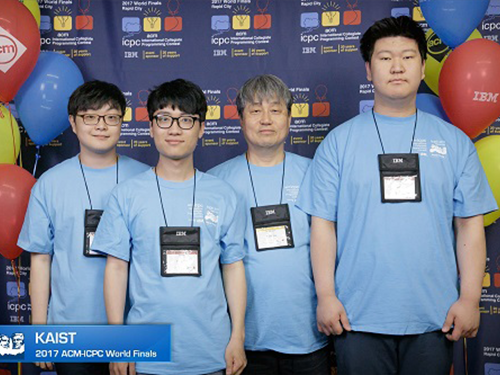 KAIST Team Wins Bronze Medal at Int'l Programming Contest
A KAIST Team consisting of undergraduate students from the School of Computing and Department of Mathematical Science received a bronze medal and First Problem Solver award at an international undergraduate programming competition, The Association for Computing Machinery-International Collegiate Programming Contest (ACM-ICPC) World Finals.
The 41st ACM-ICPC hosted by ACM and funded by IBM was held in South Dakota in the US on May 25. The competition, first held in 1977, is aimed at undergraduate students from around the world. A total of 50,000 students from 2900 universities and 103 countries participated in the regional competition and 400 students competed in the finals.
The competition required teams of three to solve 12 problems. The KAIST team was coached by Emeritus Professor Sung-Yong Shin and Professor Taisook Han. The student contestants were Jihoon Ko and Hanpil Kang from the School of Computing and Jongwoon Lee from the Department of Mathematical Science. The team finished ranked 9th, receiving a bronze medal and a $3000 prize. Additionally, the team was the first to solve all the problems and received the First Problem Solver award. Detailed score information can be found on. https://icpc.baylor.edu/scoreboard/
(Photo caption: Professor Taisook Han and his students)
2017.06.12 View 11393
KAIST Team Wins Bronze Medal at Int'l Programming Contest
A KAIST Team consisting of undergraduate students from the School of Computing and Department of Mathematical Science received a bronze medal and First Problem Solver award at an international undergraduate programming competition, The Association for Computing Machinery-International Collegiate Programming Contest (ACM-ICPC) World Finals.
The 41st ACM-ICPC hosted by ACM and funded by IBM was held in South Dakota in the US on May 25. The competition, first held in 1977, is aimed at undergraduate students from around the world. A total of 50,000 students from 2900 universities and 103 countries participated in the regional competition and 400 students competed in the finals.
The competition required teams of three to solve 12 problems. The KAIST team was coached by Emeritus Professor Sung-Yong Shin and Professor Taisook Han. The student contestants were Jihoon Ko and Hanpil Kang from the School of Computing and Jongwoon Lee from the Department of Mathematical Science. The team finished ranked 9th, receiving a bronze medal and a $3000 prize. Additionally, the team was the first to solve all the problems and received the First Problem Solver award. Detailed score information can be found on. https://icpc.baylor.edu/scoreboard/
(Photo caption: Professor Taisook Han and his students)
2017.06.12 View 11393